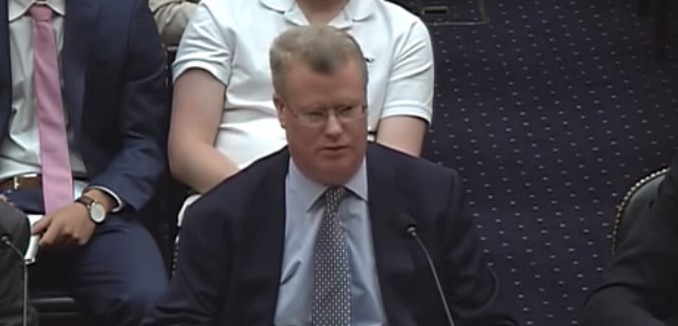Experts testifying at a congressional hearing indicated that effectively combating Hezbollah includes targeting its international financing network, the Free Beacon reported.
Hezbollah, which was created by Iran’s Islamic Revolutionary Guard Corps in the early 1980s, has morphed into a global terror network now financed by drug trafficking and other illicit activities, including money laundering. Given its global footprint, a concentrated effort by the United States is needed to limit its access to funds, the experts said.
“Our Department of Justice must rebuild, properly fund, and expand capabilities and investigations,” David Asher, formerly an adviser to Gen. John Allen at the State and Defense departments told the hearing.
“If you successfully crush a criminal organization’s financial network, you will significantly increase the chances of disrupting their illicit activities,” former Drug Enforcement Agency (DEA) official Derek Maltz added.
Despite limited success in attacking Hezbollah’s financing in the past, “Hezbollah’s aggressive and ongoing procurement efforts have not been reigned in since the signing of the JCPOA, but have actually expanded in scope,” observed Matthew Levitt, a Hezbollah expert and director of the Stein Program on Counterterrorism and Intelligence at The Washington Institute for Near East Policy.
In his testimony, Asher criticized the Obama administration’s failure to apply significant pressure to Hezbollah. “For a very low financial cost we could have legally taken apart the finances, the global organization, and the ability of Hizballah to readily terrorize us, victimize us, and run a criminal network through our shores, inside our banking system, and—in partnership with the world’s foremost drug cartels—target our state and society,” he said. “Instead, in narrow pursuit of the P5 + 1 agreement, the administration failed to realize the lasting effect on U.S. law enforcement collaborative efforts and actively mitigated investigations and prosecutions needed to effectively dismantle Hizballah and the Iran ‘Action Network.'”
Maltz referred to how the U.S. government targeted the Lebanese Canadian Bank for its ties to Hezbollah and the West African drug trade as a model for targeting Hezbollah in the future.
Meanwhile, Levitt offered specific policy recommendations, including targeting entities that assist Hezbollah under the Hizballah International Financing Prevention Act (HIFPA), targeting criminal enterprises supporting Hezbollah, extending HIFPA sanctions to financial institutions serving Hezbollah outside of the Middle East, designating Hezbollah as a Transnational Criminal Organization, sanctioning Iran for supporting Hezbollah, and improving inter-agency cooperation against Iran and its allies.
The loosening of pressure on Hezbollah by the Obama administration in an effort to facilitate the nuclear deal, as Asher described, recalls a recent article on Politico on how the administration also failed to follow through on the prosecutions and investigations of numerous individuals who violated Iran-related sanctions.
[Photo: House Foreign Affairs Committee / YouTube ]




